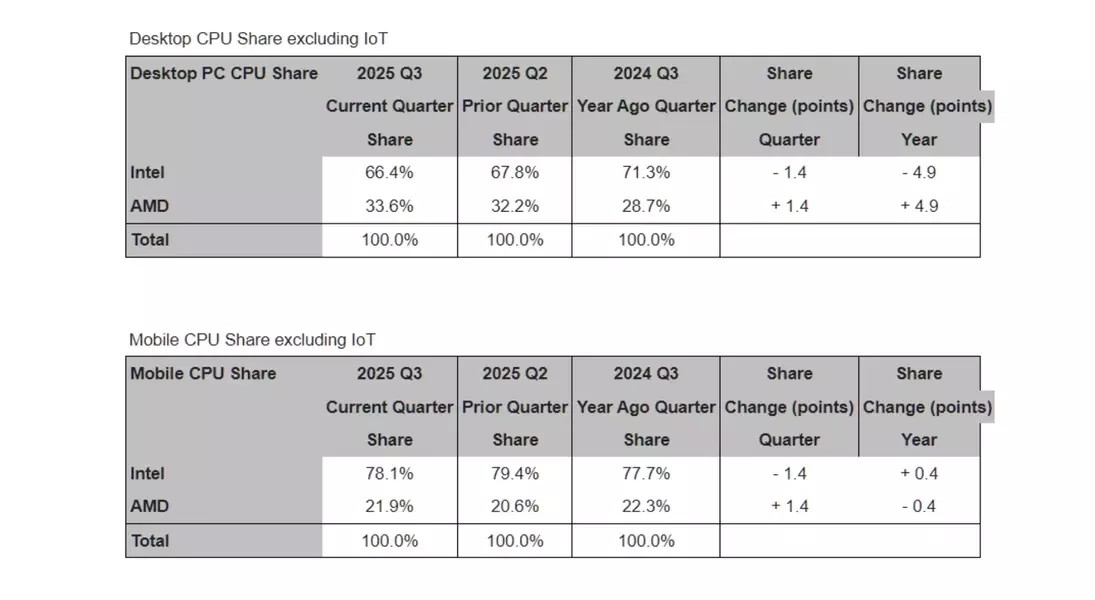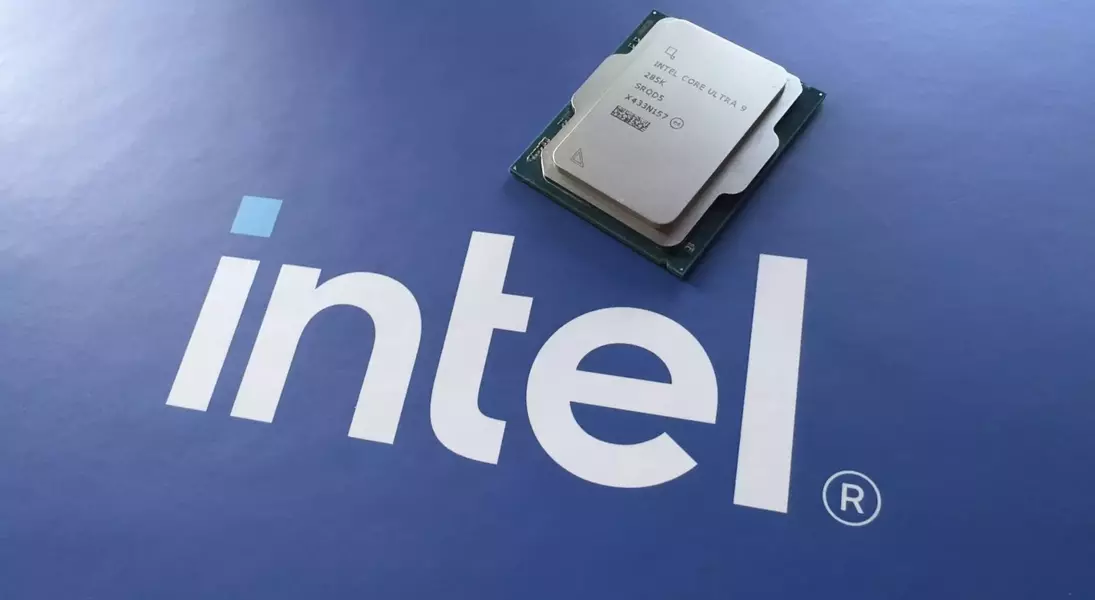



Market Dynamics: Why Intel Persists Despite Criticism
Initial Impressions of Intel's Latest Desktop CPUs
Intel's recent desktop processor releases, including models like the Core Ultra 9 285K and Core Ultra 5 245K, received a rather unenthusiastic reception. Reviewers noted that these new chips, while certainly not slow, performed less favorably in gaming scenarios compared to some older Raptor Lake generation counterparts. Furthermore, their value proposition seemed less compelling when benchmarked against AMD's competing offerings.
Intel's Enduring Market Dominance
Despite the critical feedback, fresh statistics from Mercury Research indicate that these evaluations had less impact on Intel's market share than one might anticipate. Intel's desktop CPU segment experienced a modest decrease of 4.9% in the third quarter of the current year compared to the same period last year. This suggests a remarkable resilience in the face of negative sentiment from the tech community.
AMD's Position in the CPU Landscape
Although AMD has had a particularly successful year with its desktop processors, it still lags behind Intel in overall market share, capturing 33.6% of the desktop market. The situation in the mobile chip sector is even more challenging for AMD, where its percentage share actually declined to 21.9% from 22.3% in the corresponding quarter of the previous year.
The Influence of OEM Partnerships on Market Share
The discrepancy between critical reviews and market performance can largely be attributed to the significant difference between the DIY PC building community and the original equipment manufacturer (OEM) market. While PC enthusiasts often prioritize performance and value in individual components, major system manufacturers frequently have long-standing agreements with Intel, committing to integrate their chips extensively into pre-built desktop and laptop systems. This ensures a steady demand for Intel's products, irrespective of enthusiast opinions.
Intel's Continued Presence in the Laptop Segment
The impact of OEM partnerships is even more pronounced in the laptop market. While a surprising shift by Razer to AMD for its latest Blade gaming laptops sparked speculation about a potential market pivot, this has not materialized across the industry. Most laptop manufacturers continue to predominantly feature Intel chips in their offerings. Moreover, Intel's recent mobile CPUs have demonstrated impressive performance in tests, further solidifying their position in this crucial segment. Ultimately, the broader market is heavily influenced by manufacturers' choices, which often favor established relationships with Intel, making the CPU market a complex arena where long-term agreements often outweigh short-term performance critiques.
